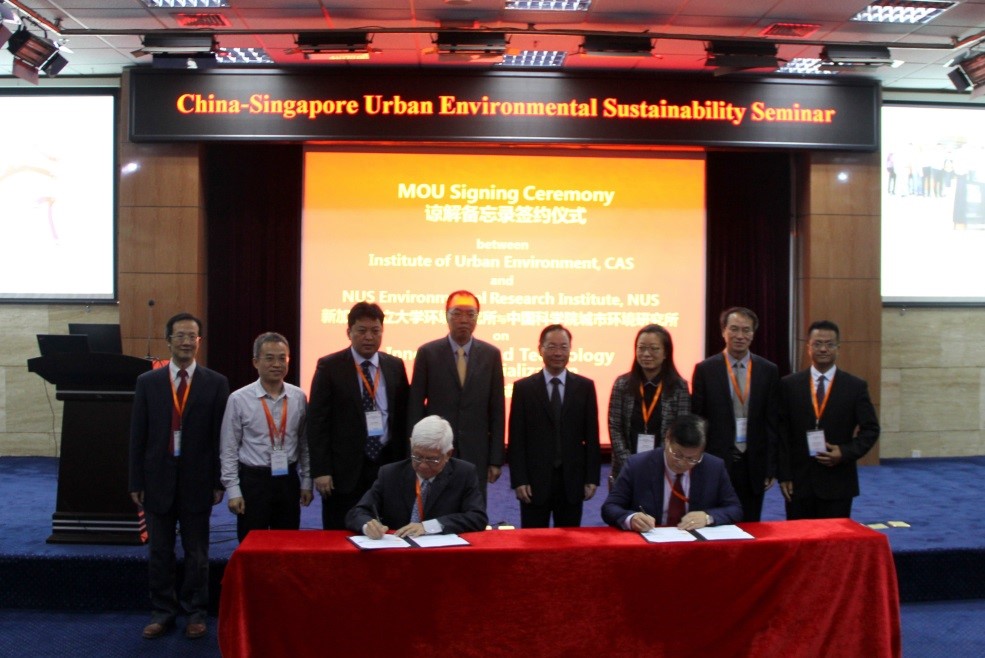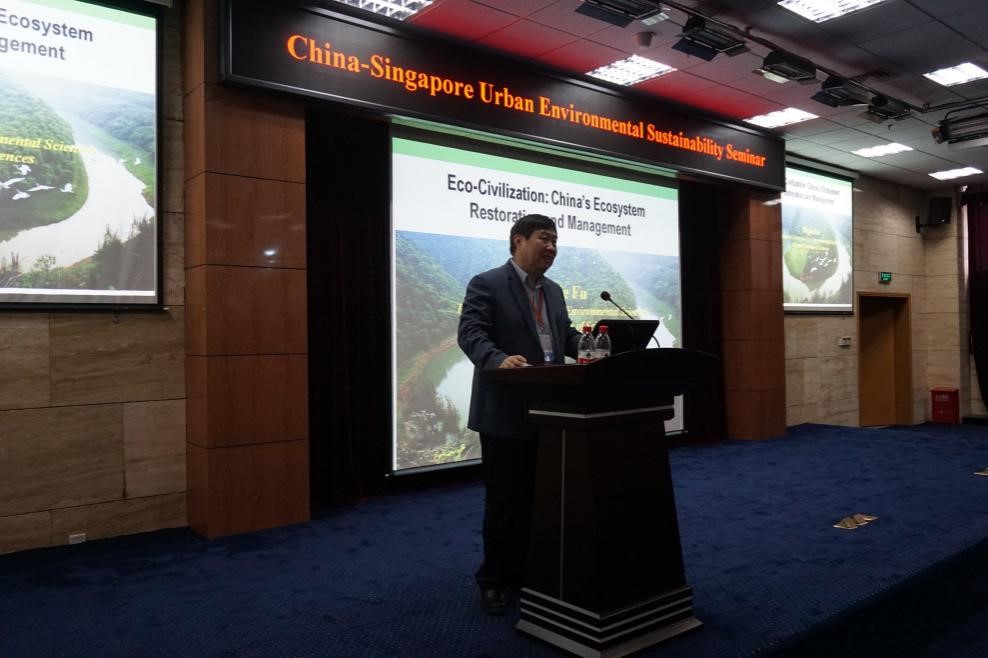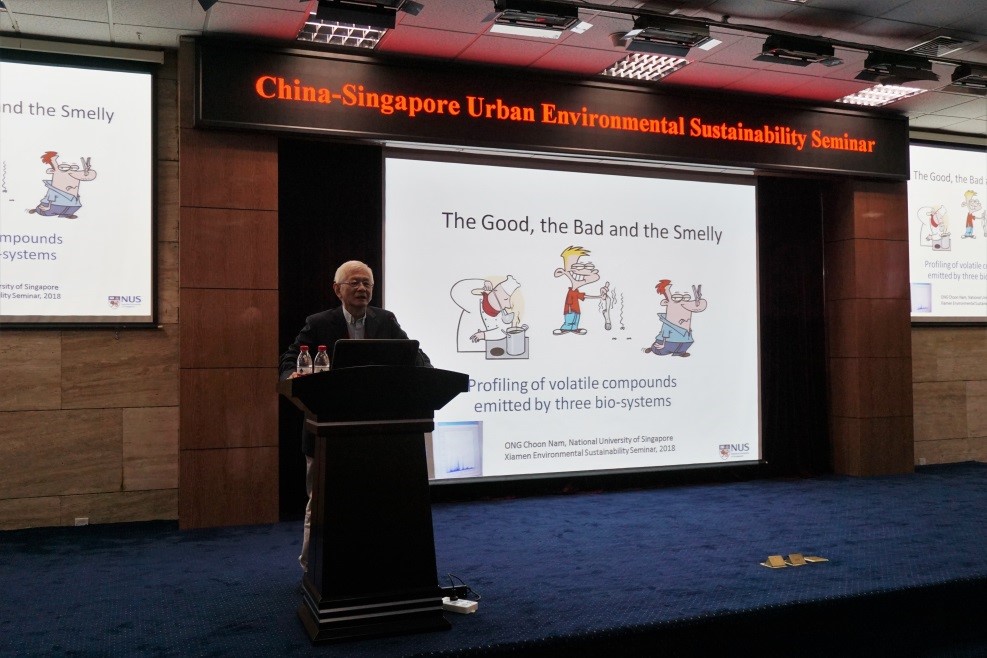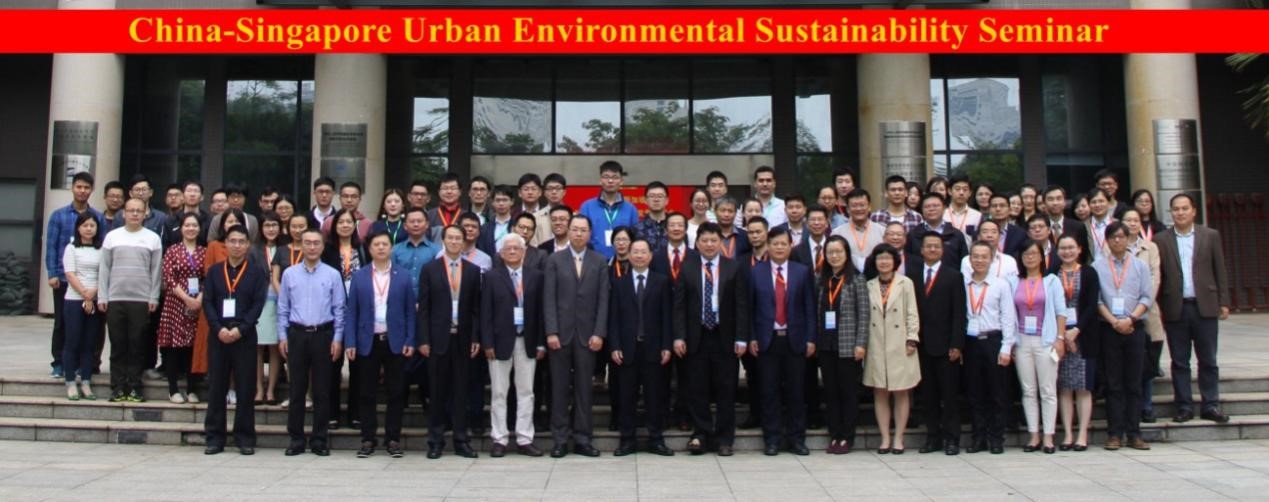Institute of Urban Environment (IUE), Chinese Academy of Sciences (CAS), in collaboration with National University of Singapore (NUS) and Shanghai Jiaotong University (SJTU), organized the China-Singapore Urban Environmental Sustainability Seminar in Xiamen, China during November 4-5, 2018.
Qin-Hui Li (Secretary of the Jimei District Party Committee of Xiamen), Zhao-Sen Chi (Consul General of the Singapore Consulate General in Xiamen), Choon Nam Ong (Director of the Environmental Research Institute of NUS), Yong-Guan Zhu (Secretary of the Party Committee of IUE, CSA), and Wei-Wei Hu (Secretary of the Party Committee of the School of Environmental Science and Engineering, SJTU) attended the opening ceremony and delivered speeches. IUE, CAS and NUS signed a memorandum of understanding to agree with the cooperation in innovation and technology commercialization.

The seminar assembled nearly 100 experts and scholars from NUS, SJTU and IUE, CAS, having discussions on four themes including air quality and health, water pollution control and reuse, emerging pollutants, and solid waste and recycling. In the seminar, professor Bo-Jie Fu, the CAS Academician, used big data analytics to expound the importance of ecological civilization construction and ecosystem protection. He pointed out that only the development of circular economy can create a far-reaching and sustainable future for mankind; Professor Choon Nam Ong from NUS talked about the volatile organic compounds (VOCs) released from plants as well as their impact on human health and implications for medical diagnosis; Professor How Yong Ng introduced a long-term rapid online monitoring system based on microbial electrochemical sensors and its application; Professor Yi-Liang He from SJTU discussed the status quo of antibiotic pollution in urban-river-reservoir system and its environmental and ecological risks; Professor You-Cai Zhao of Tongji University gave the audience an insight into the current system of classification and resource utilization of rural domestic waste in China, and put forward suggestions from several aspects such as management and education; Professor Zhong-Ning Lin of Xiamen University discussed the health risks of antibiotics and heavy metal pollution, and recent progress on hepatitis B, cervical cancer and HIV vaccines.


Scientists from China and Singapore had more extensive and in-depth discussions on air quality monitoring and purification, disposal and recycling of kitchen and construction waste, new materials and technologies for emerging pollutants such as nanomaterials and membrane technologies and their applications. It provided theoretical guidance and technical support for the sustainable development of cities, and ulteriorly strengthened ties between environmental scientists on both sides. During the seminar, the 1st academic forum on urban environment and development was successfully held on the evening of the November 4th. On the afternoon of the 5th, the environmental science and technology achievement promotion meeting was also held as scheduled. The experts from China and Singapore introduced their latest scientific research achievements to business representatives from more than 30 local companies, and explored the possibility of establishing a commercialization platform based on existing intellectual property rights and new innovations to promote the transformation of scientific and technological achievements, develop new products and corresponding services and implement sustainable urban development.

The successful convening of the seminar has coordinated the international cooperation between China and Singapore in urban environment and sustainable development, giving a full play to the advantages of two sides, integrating professional resources and capabilities in relevant fields, sharing ideas, experiences and research achievements on urban environment, promoting the green sustainable development of cities along the “Belt and Road” and furthering the implementation of the 2030 Sustainable Development Agenda with ASEAN countries.

(Text by Chen Jiangping, Ke Xinjue; Photo by Chen Xi)